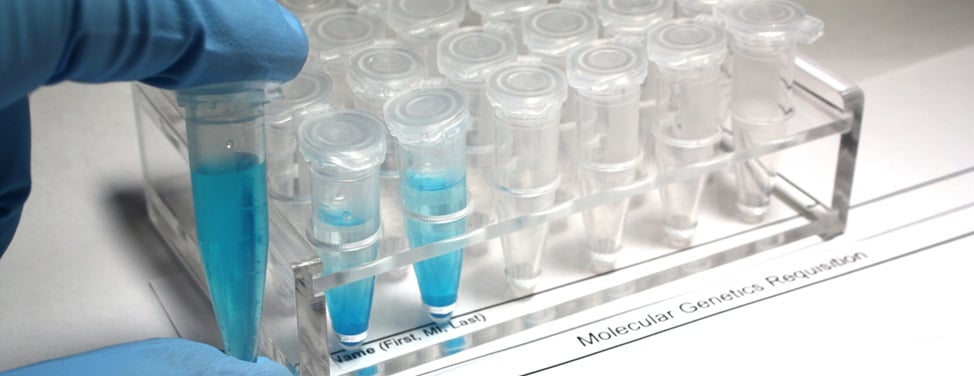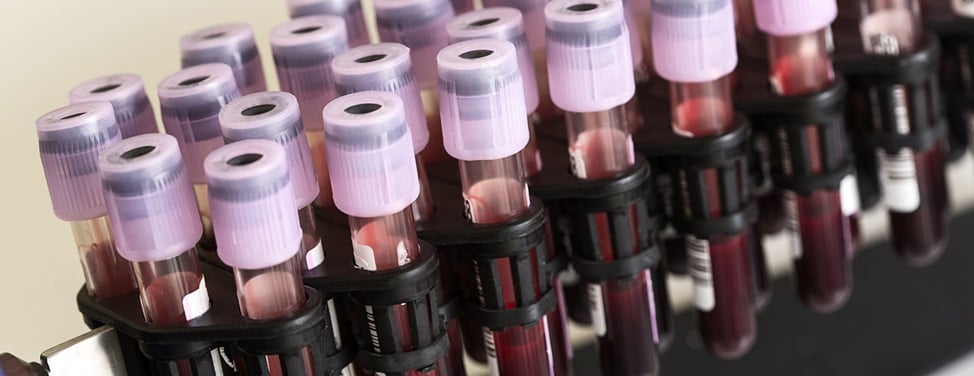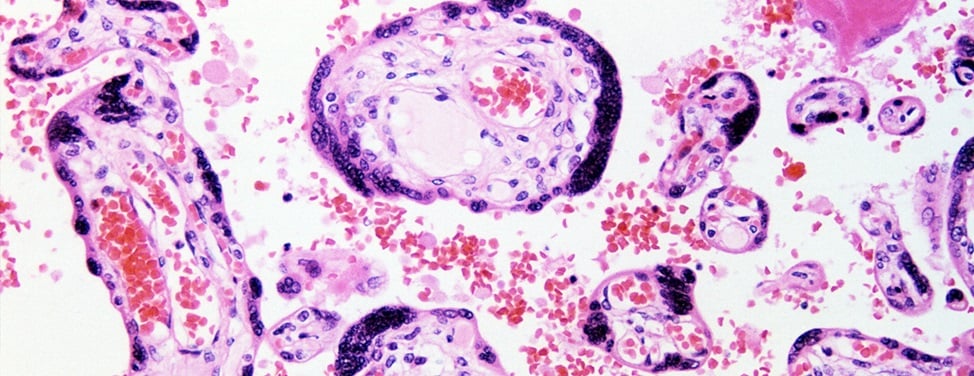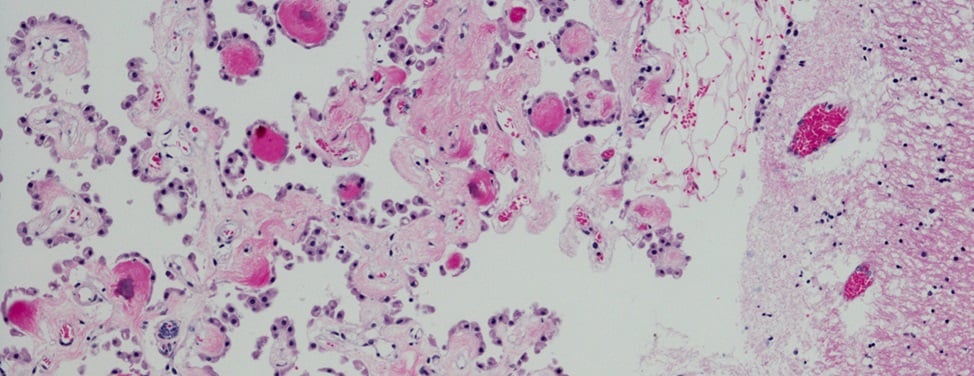- What is fragile X syndrome?
- How is fragile X syndrome inherited?
- Who can be a fragile X carrier?
- Who is at greater risk to be a fragile X carrier?
- What is the fragile X carrier test and what do the results show?
- What are the possible results from a fragile X carrier test?
- Is prenatal testing available?

FAQ: Carrier Testing for Fragile X Syndrome
Fragile X syndrome is the most common cause of inherited intellectual disability. The condition affects approximately 1 in 3,600 males and 1 in 6,000 females.
Fragile X syndrome causes a range of symptoms, including mild to severe intellectual disability. Behavioral characteristics include autism, hyperactivity, short attention span and poor eye contact.
Physical features – such as a long face, large or prominent ears, and flat feet – are usually more noticeable in young adults than in children and in males more than females. Males with the condition may also have enlarged testes.
How is fragile X syndrome inherited?
Fragile X syndrome is caused by a change in the FMR1 gene. The FMR1 gene is located on the X chromosome. This abnormal gene, which can be passed from generation to generation, is usually inherited through the gene that is carried by women.
A fragile X carrier is someone who has an altered FMR1 gene, but does not show any obvious signs or symptoms of fragile X syndrome. Women who are fragile X carriers have up to a 50 percent chance of having a child with fragile X syndrome. Men who are fragile X carriers will pass the altered gene to all of their daughters but none of their sons. Daughters of carrier men are expected to be intellectually normal but are at risk of having children affected with fragile X syndrome.
The genetics of fragile X syndrome are complicated. Genetic counseling is recommended when someone has a family history of fragile X syndrome or is shown to be a carrier of fragile X.
Who can be a fragile X carrier?
Anyone can be a carrier of fragile X syndrome. It is found among all ethnic backgrounds and racial groups. Approximately 1 in 250 women in the general population are carriers of the abnormal gene that causes fragile X syndrome. A woman of any age can have a child with fragile X syndrome, whether or not she has had previous children.
Who is at greater risk to be a fragile X carrier?
You are at greater risk if you have:
- A family history of fragile X syndrome
- A family history of intellectual disability, developmental delay or autism of unknown cause
- Infertility problems associated with elevated follicle stimulating hormone (FSH) levels or premature ovarian failure (POF)
- A family history of adult onset ataxia and/or tremors
What is the fragile X carrier test and what do the results show?
The fragile X carrier test provides specific information about whether or not individuals are fragile X carriers, and about their risks of having a child with fragile X syndrome. The test is performed on a small sample of blood. Results are usually available within two weeks. Testing provides accurate results more than 99 percent of the time. Other causes of intellectual or developmental disability are not identified through this test.
What are the possible results from a fragile X carrier test?
There are four possible results from a fragile X carrier test:
- Negative. You are not a carrier for the most common alteration in the FMR1 gene and your baby is not at increased risk for fragile X syndrome.
- Intermediate. Your results fall in the range between negative and premutation. Your baby is not at increased risk for fragile X syndrome. Future generations may be at risk for fragile X syndrome.
- Premutation. You are a carrier for the altered FMR1 gene. You may be at risk for early menopause. Your baby is at risk for fragile X syndrome. Prenatal diagnostic testing is available.
- Full mutation. You are a carrier for the altered FMR1 gene. Your baby is at risk for fragile X syndrome. Prenatal diagnostic testing is available.
Genetic counseling is recommended and available when someone is shown to be a carrier of fragile X.
Is prenatal testing available?
Prenatal testing can be performed by amniocentesis at 16 to 20 weeks or by chorionic villus sampling (CVS) at 10 to 13 weeks to determine if a fetus has inherited the fragile X gene.
For more information about fragile X syndrome, genetic counseling, or to arrange carrier testing, please contact the Prenatal Diagnostic Center.
UCSF Health medical specialists have reviewed this information. It is for educational purposes only and is not intended to replace the advice of your doctor or other health care provider. We encourage you to discuss any questions or concerns you may have with your provider.
















